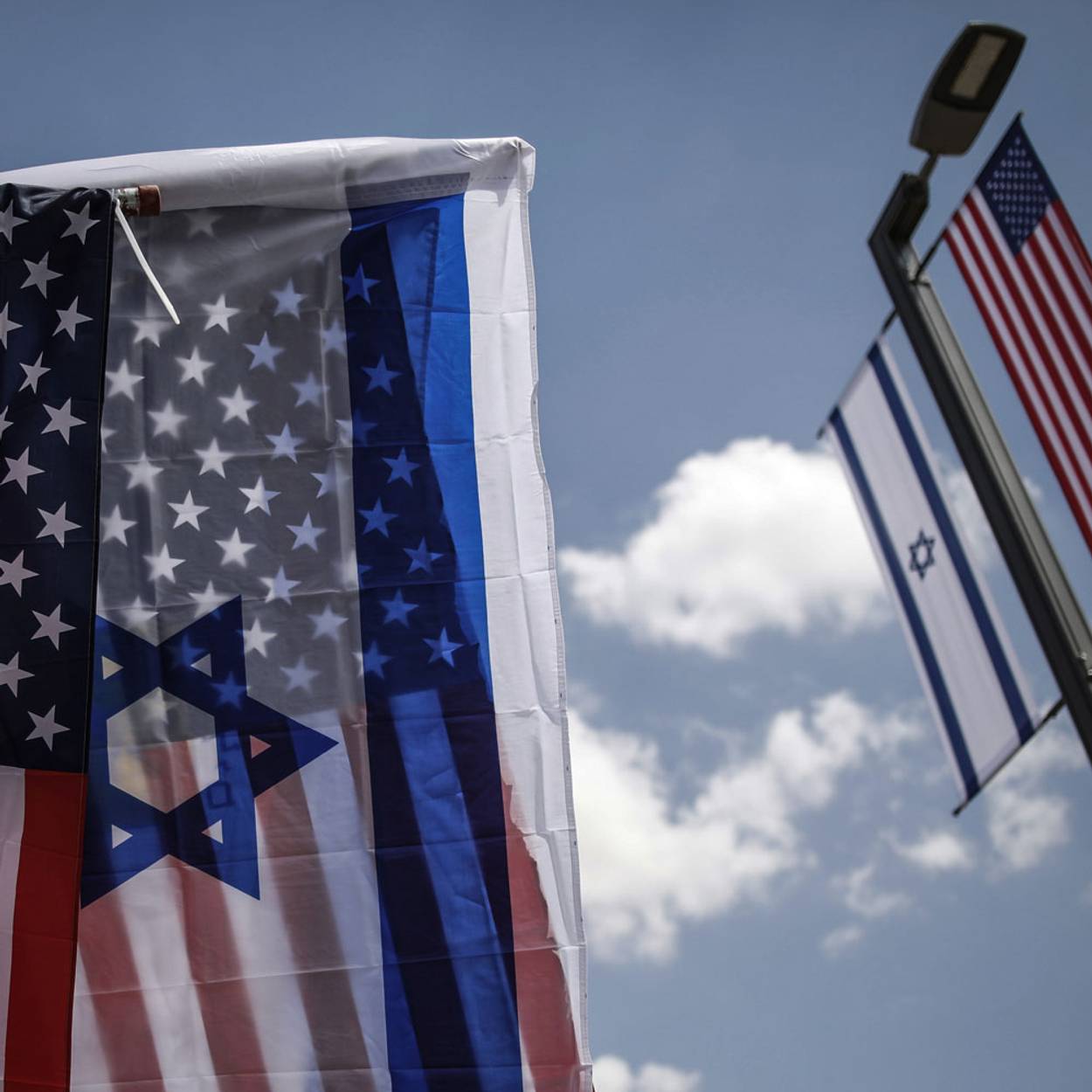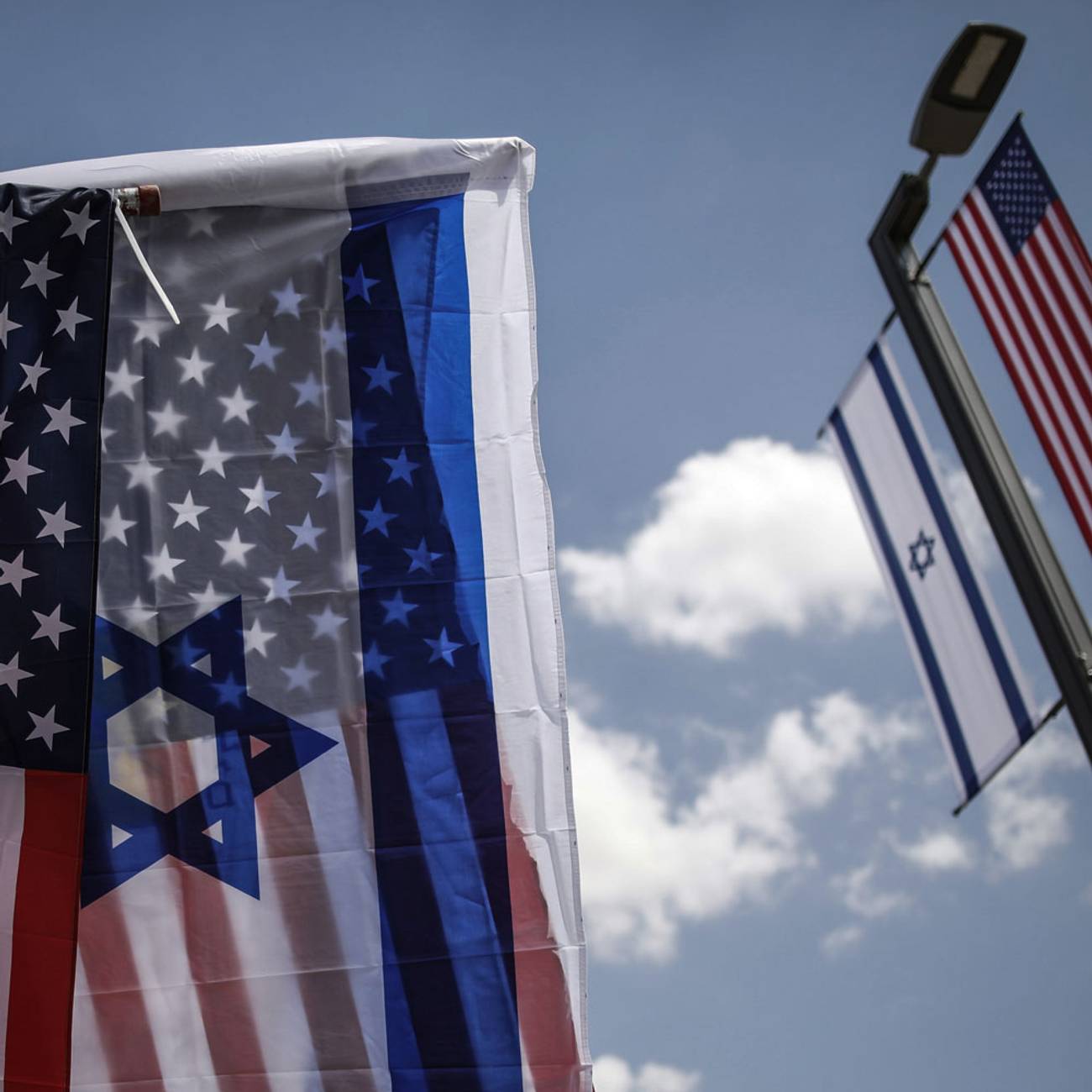It’s About Partnership
U.S. aid to Israel creates an ironclad bond between the two nations

Corinna Kern/Picture Alliance via Getty Images

Corinna Kern/Picture Alliance via Getty Images

Corinna Kern/Picture Alliance via Getty Images

Corinna Kern/Picture Alliance via Getty Images
A year ago, in July 2022, President Biden and former Prime Minister Lapid, signed the “Jerusalem U.S.-Israel Joint Declaration,” emphasizing that the strategic partnership between the countries “is based on a bedrock of shared values, shared interests, and true friendship.” It also stated that Israel’s ability to defend itself, by itself, is not merely an Israeli interest but “vitally important to the national security of the U.S. itself.” Three essential components ensure that Israel will be militarily self-reliant:
U.S. military aid is a framework to guarantee these components, and by doing so it allows the U.S. to avoid another great war in the Middle East and strengthens its interests in the region: save American lives, support regional stability, enhance energy security, counter anti-American forces led by Iran and terrorist groups, and save significant American resources for the great power competition with China, while allowing Israel to secure its place in the Middle East.
In their recent piece, “End U.S. Aid to Israel,” Jacob Siegel and Liel Leibovitz rightly pointed out two important observations: the benefits of the relationship with Israel have grown larger for the U.S.; and under the Memorandum of Understanding signed in 2016, nearly all military assistance to Israel “consists of credits that go directly from the Pentagon to U.S. weapons manufacturers,” thus subsidizing American military contractors. Their conclusion—that the U.S.-Israel relationship should have a transactional nature—is also noteworthy. However, their analysis missed the fact that the current “special relations” between Israel and the U.S. are already based on a successful win-win bargain which effectively strengthens their strategic partnership.
The yearly $3.8 billion military aid is a framework to advance the countries’ shared values and interests. It guarantees supplying the IDF with advanced American weapons, thus preserving Israel’s qualitative military edge—one of Israel’s main national security pillars. It also enables joint efforts on developing future weaponry, including air defense capabilities—such as Arrow, Iron Dome, and David’s Sling—which saved countless lives, both Israeli and Palestinian, and could save many more in a possible future military confrontation between Israel and Hezbollah and Iran. Iron Dome protects American troops in the region, and Arrow batteries are expected to protect Germans in the coming years. Israeli air defense incentivized U.S. partners to normalize relations with Israel and to expand the “peace wave” in the Middle East to improve their defensive capabilities.
More than anything, the aid symbolizes America’s commitment to Israel’s security, which dramatically affects Israel’s and America’s deterrence posture and avoids a military confrontation in the region. Iran will be more brazen should its regime conclude that the U.S. will not stand by Israel in a future confrontation. It might also consider breaking out to a bomb in light of the absence of a credible threat from the U.S. and Israel. Hezbollah will be less deterred and even Palestinian terrorist organizations, such as Hamas and the Palestinian Islamic Jihad, would be less restrained in promoting terror attacks in Israel if the U.S. commitment to its security is undermined. Altogether, the U.S.-Israel military partnership serves as a stabilizing force and prevents further security deterioration and its humanitarian costs.
Not only should the American-Israeli partnership not be changed—it actually suits contemporary U.S. strategic priorities, as the administration is resolved to allocate more resources to the Indo-Pacific while optimizing its assets in the Middle East. Israel’s “defend itself by itself” approach, enables the U.S. to effectively use its regional posture to build a regional pro-American coalition that counters Iran’s malign activities while enhancing U.S. influence and diminishing China’s and Russia’s.
Assessing U.S. security aid to Israel by its influential impact—whether it constrains Israeli policy—is likely to overlook its importance to both countries’ national security. Simultaneously, it will be a grave mistake to see the military assistance package as an obstacle to enhancing the relations even further. The aid signifies the bond between the countries and the framework for cooperation between them, and should serve as a basis for future upgrades that better reflect the nations’ interests in the 21st century.
In fact, during President Biden’s visit to Israel last year, he announced the launch of U.S.-Israel Strategic High-Level Dialogue on Technology in critical and emerging technologies, led by their national security advisers. This dialogue should be an opportunity to fortify Israel’s commitment to preserve U.S. technological superiority, while promoting its own tech hub and boosting their mutual innovation ecosystems. By doing so, the U.S. and Israel could create a new pillar which invigorates their common partnership in light of the great U.S.-China rivalry, and deepens the relations between their peoples.
As Israeli society faces a struggle over its democratic nature, an immense grassroots liberal force has emerged. This force consists of the majority of Israelis—right, center, and left wings alike. Its chief international ally is the U.S., and its vision is to make Israeli democracy stronger, which would further deepen the moral bond Israel shares with America. This is yet another opportunity to bolster the bonds between the nations. Forming new U.S. policies regarding Israel, while focusing only on its current government, will be erroneous and dangerous for the interests of both countries.
Amos Yadlin is the president and founder of MIND Israel. He is a retired Major General who served as the head of Israel Defence Intelligence and deputy commander of the Israeli Air Force.
Dr. Avner Golov is VP of MIND Israel. He served as a senior director at Israel’s National Security Council.